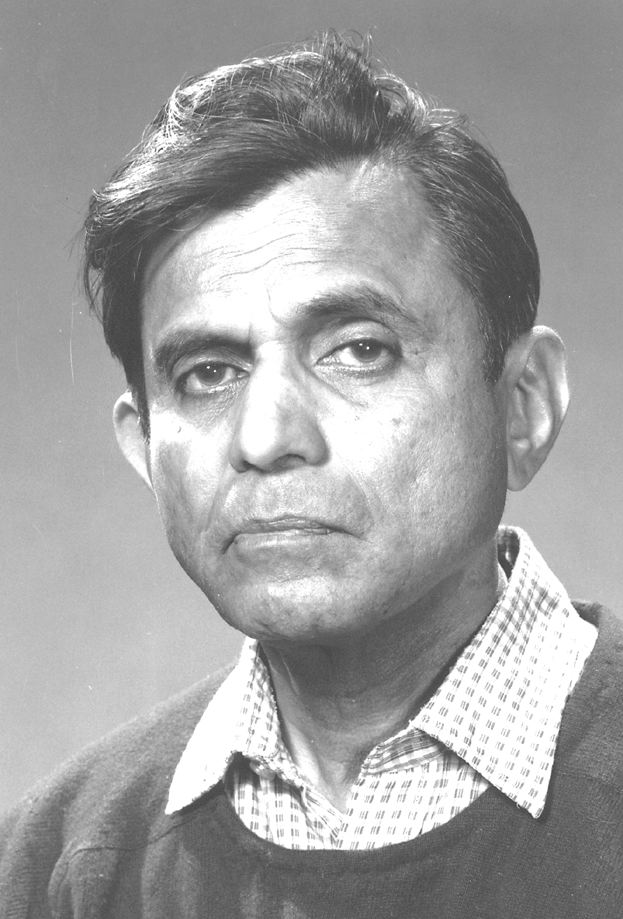Vidyadhar P. Godambe, who died June 9, 2016, is recognized as a pioneer in the foundations of inference in survey sampling. He is also known for formulating and developing a theory of estimating equations. His research contributions, and the fervour with which he pursued the answers to fundamental questions, attracted many other researchers and students to work in the foundations of inference.
Godambe was born June 1, 1926 in Pune, in the state of Maharashtra in India. He was the second born and the only son in a family of four children. He was educated at the Nutan Marathi Vidyalaya, a leading school in Pune, and at Fergusson College for his BSc in mathematics. He was awarded an MSc degree from Bombay University in 1950, and the PhD in 1958 from the University of London. Following a year as Senior Research Fellow at the Indian Statistical Institute in Calcutta, he became Professor and Head of the Statistics Department at Science College in Nagpur, and later held the same post at the Institute of Science, Bombay. In 1964, he left India for North America, his first position being at the Dominion Bureau of Statistics, now Statistics Canada. After visiting appointments at Johns Hopkins University and the University of Michigan, he joined the University of Waterloo in 1967. He remained in Waterloo thereafter, although he also spent the winter months in India in later years, and kept in touch with colleagues at the University of Pune. An interview appears in Volume 17, Issue 4 (2002) of Statistical Science, 458-466.
While employed as a government statistician before undertaking his PhD, Godambe published the path-breaking paper, “A unified theory of sampling from finite populations”, in the Journal of the Royal Statistical Society in 1955. This paper provided a theoretical framework for the problem of estimating a survey population total from a probability sample. The new framework led to the surprising result that in terms of standard optimality criteria, there was no best unbiased linear estimator, if the coefficients were allowed to depend on the sampled unit labels. Thus the need for new ways of evaluating sampling strategies was established, and opened the way to much further work.
The late 1950s and early 1960s were a time of re-examination of the foundations of inference in terms of “principles”, by leading statisticians such as G. A. Barnard, A. Birnbaum, D. R. Cox, D. A. S. Fraser and D. A. Sprott. Godambe realized that his formulation of the survey estimation problem highlighted an apparent contradiction: the likelihood and conditionality principles appeared to be in conflict with “design-based estimation”, or estimation based on the randomization in the sampling design. Beginning with a 1966 paper, “A new approach to sampling from finite populations”, he wrote several papers on the riddle of the role of randomized sampling in survey inference, particularly in the presence of a statistical model for the survey responses. A 1982 paper in the Journal of the American Statistical Association proposed a resolution of the problem, relating the robustness of design-based inference to the treatment of nuisance parameters in traditional statistical theory. However, in the same year and journal, he published the collection of examples known as “Godambe’s paradox”, revealing that the tension between the principles of inference and the role of randomization persists beyond survey inference, to the foundations of statistics.
In the same period he was also contributing to estimation theory. In 1960 in the Annals of Statistics he published the note, “An optimum property of regular maximum likelihood estimation”, defining the notion of an unbiased estimating equation, and introducing an optimality criterion for estimating functions under which the maximum likelihood estimating function (and equation) were optimal. Godambe’s focus on the estimating function rather than the estimator allowed him from his perspective to assert optimality without reference to asymptotics. In subsequent work he and others developed estimating function methodology into an established framework for estimation with many applications.
Godambe was a Fellow of the Institute of Mathematical Statistics, a Fellow of the American Statistical Association, and an Honorary Member of both the Statistical Society of Canada and the International Indian Statistical Association. He was a Platinum Jubilee Lecturer of the 1990 Indian Science Congress, and in 1987 was awarded the Gold Medal of the Statistical Society of Canada. In 2002 he became a Fellow of the Royal Society of Canada.
—
Written by Mary Thompson, University of Waterloo.
Acknowledgments: An obituary on which this one is based was first requested by the Royal Statistical Society some years ago. A version also appears in the August 2016 issue of Liaison, the Statistical Society of Canada newsletter. Some portions are adapted from an Appendix (by M. Thompson) to the 2006 biography, Philosopher–Statistician: Vidyadhar Godambe, by Chintamani Deshmukh.

Comments on “Obituary: V.P. Godambe, 1926–2016”